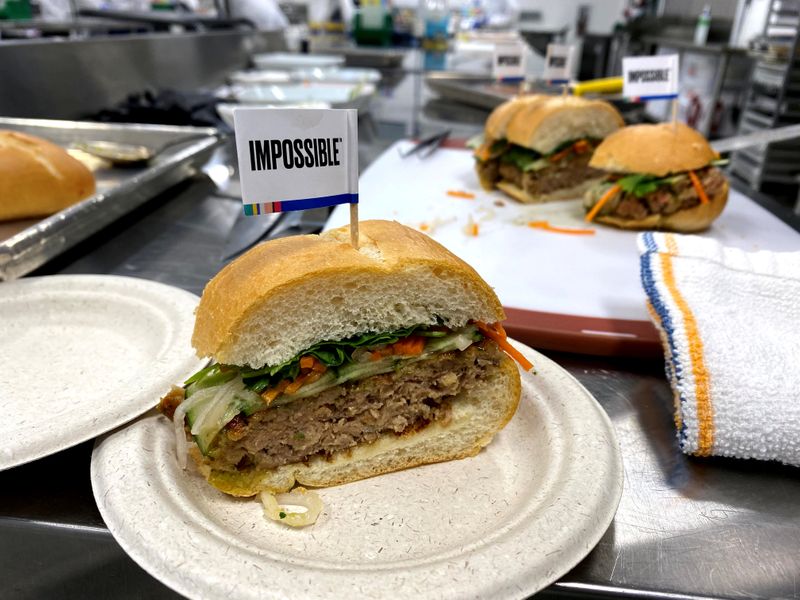HONG KONG (Reuters) - Plant-based burger maker Impossible Foods said on Thursday it would start selling its faux pork product in Hong Kong, its first expansion outside of the United States as it seeks to tap more environment-conscious diners.
The sausage patty, made from soy protein, is the Silicon Valley-based company's second product since its faux beef burger in 2016.
It launched the Impossible Sausage in the United States earlier this year.
Asia is a key growth area, said Chief Executive Pat Brown, as the company aims to capitalize on the region's high consumption of pork.
"Consumers are accelerating the shift to a plant-based food system. This is particularly true in Asia where pork dominates the meat market," he told an online news briefing.
Producing plant-based food and beverages is less demanding on the environment compared with items relying on animal agriculture, which typically needs far more land and water.
Pork is the world's most widely eaten meat, accounting for 36% of intake, showed data from the United Nations Food and Agriculture Organization.
David Lee, Impossible's chief financial officer, said the Impossible Sausage would be available in Hong Kong at Starbucks Corp (O:SBUX) cafes as well as restaurants including burger joint Triple O's from this month.
In August, Impossible said it secured $200 million in funding, less than six months after raising the largest-ever amount for a food tech startup, bringing total funds raised since its 2011 founding to $1.5 billion.
Impossible Sausage's Hong Kong debut comes more than two years after home-grown OmniPork launched its mock pork product in supermarkets and restaurants across the city.
Demand for plant-based protein foods has surged in Asia, suppliers said, as suspicion over links between wild animal meat and the novel coronavirus prompts a diet rethink, particularly in Hong Kong and mainland China.

Starbucks this week said it was adding plant-based food and beverages to menus across Asia.
